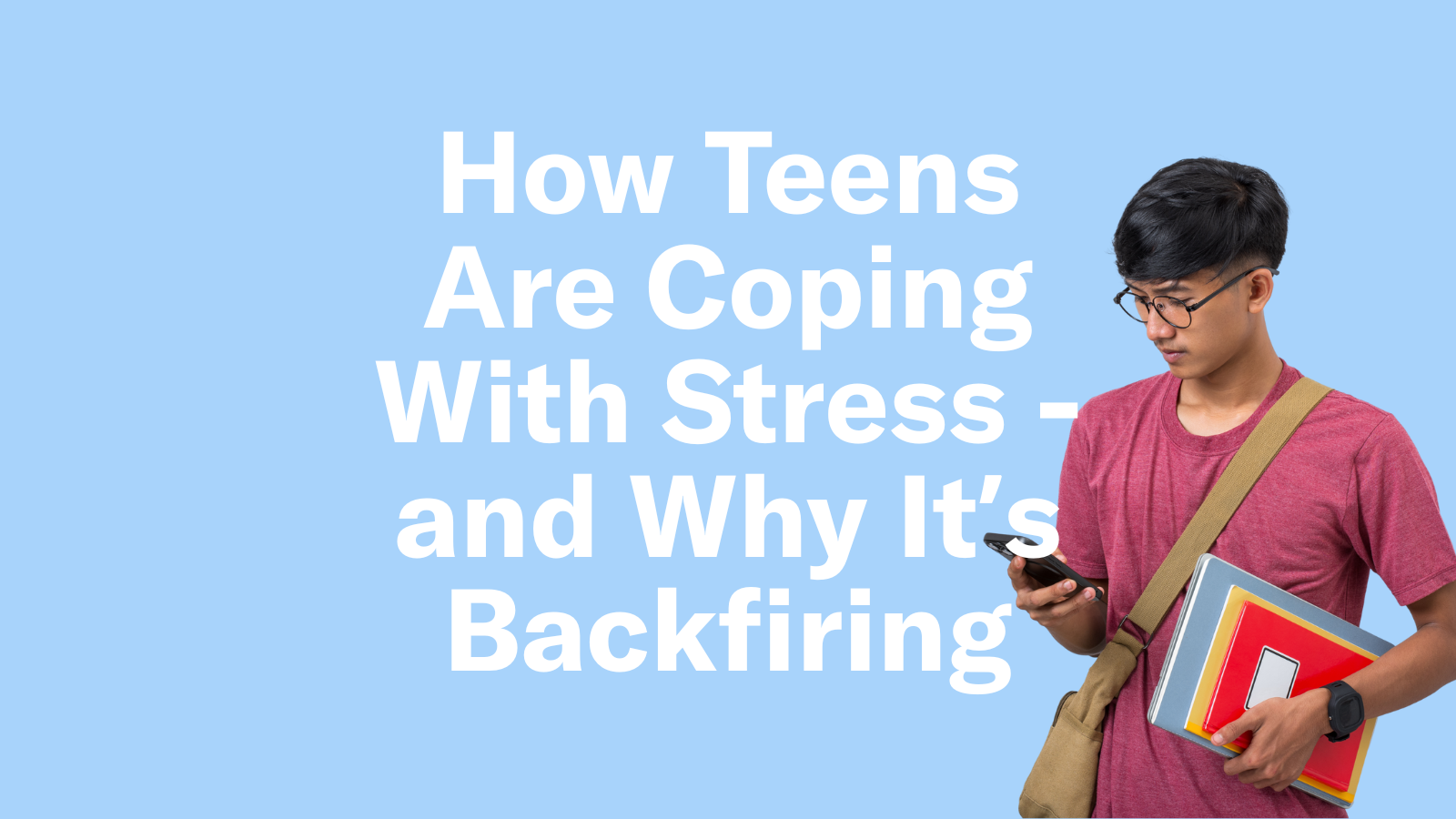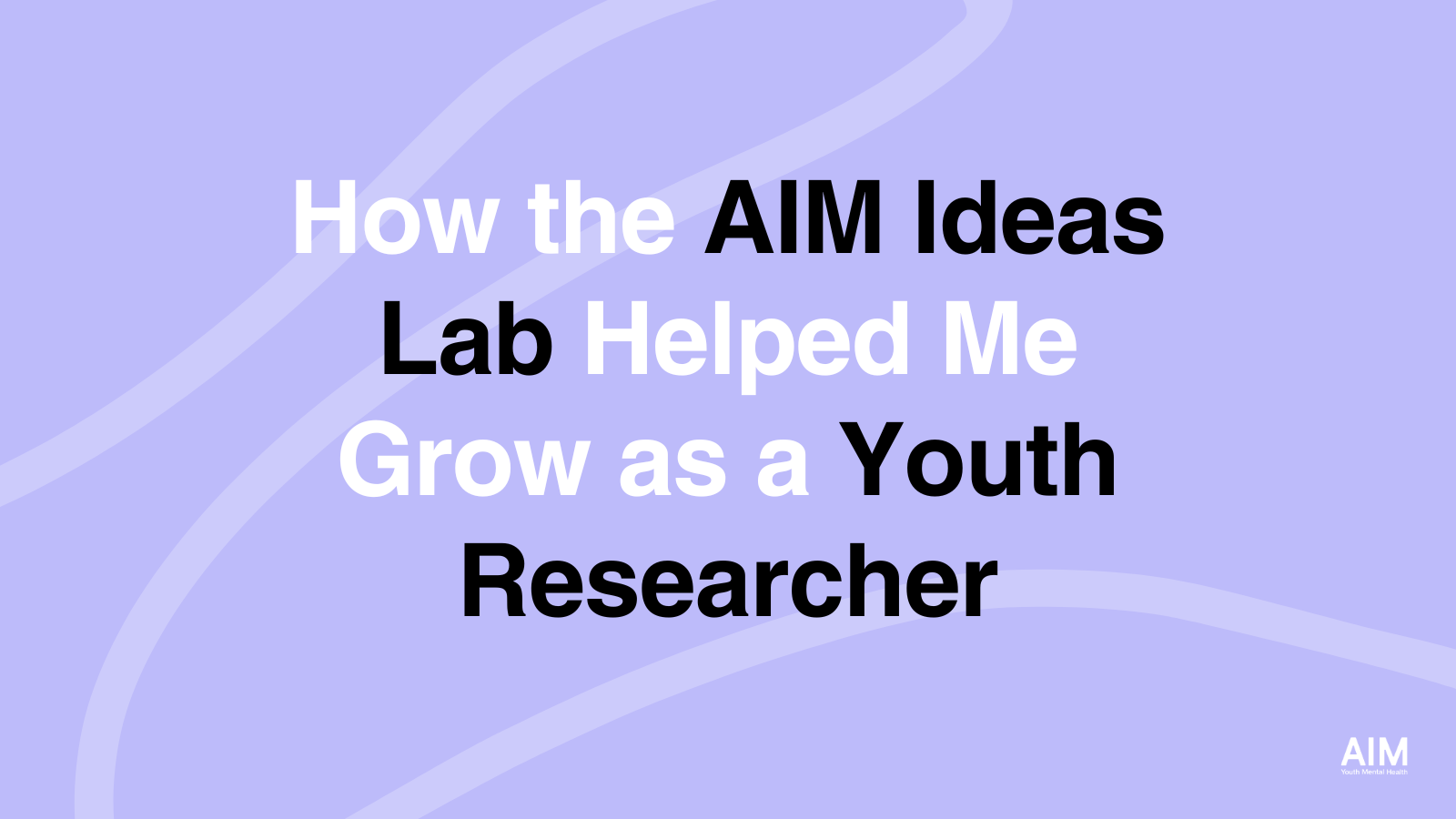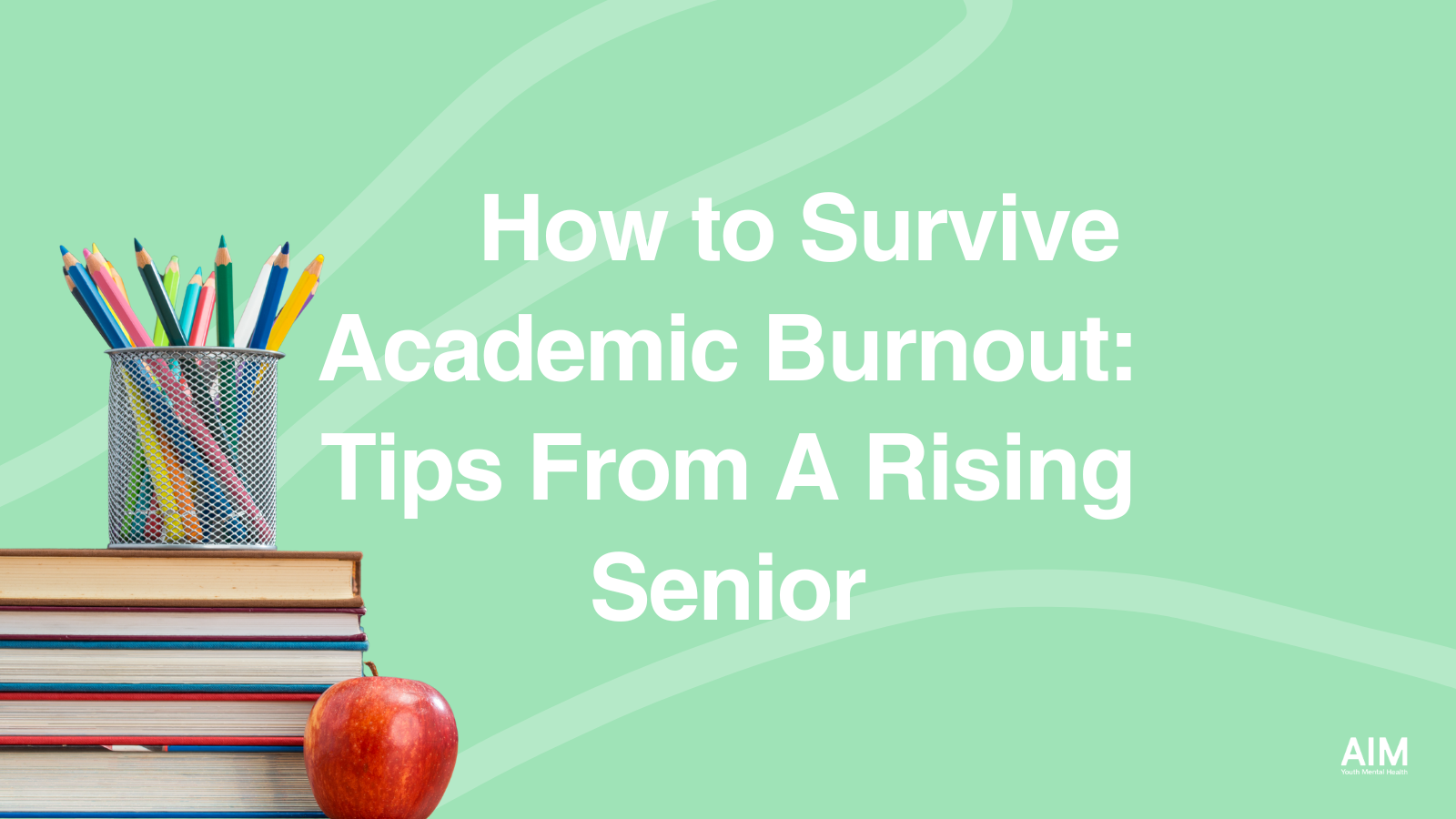By Meadowlark Monaghan, AIM Youth Advisory Board Member
It was an early Monday morning of my sophomore year in college as I dragged myself into my university’s Counseling & Psychological Services—my employer at the time—to a training about depression. My first year of college had brewed a perfect storm of newfound independence and body image issues that led me straight into a toxic relationship with nutrition and exercise. So, that fateful Monday in 2013, when I first learned from our leading psychiatrist that you could actually prescribe exercise as a treatment for depression, my world was subsequently rocked.
How many times have we rolled our eyes at the classic “diet-and-exercise” answer to our problems? But, as an answer to our mental health problems? Back in 2013, this was news to me. And it was just the reframe I needed to shake up my belief system. Throughout the past ten years, I’ve redefined my relationship to movement from a means to an end—the “end” previously being to look a certain way—to the means being the “end” in and of itself. I don’t move to achieve a goal, I move because my goal is simply to move in order to take care of my mind.
For many of us, this was seemingly redefined in the height of COVID, as “silly, little mental health walks” and Pokémon GO became ubiquitous across social media feeds. The secret was long out: exercise can change the structure of your brain to make joy more possible. That joy was something we desperately needed during our collective trauma. Today, we know that movement’s benefit for our mental health goes so much farther. Regular exercise, in addition to fostering joy, allows us to connect with others, make us feel brave, builds trust and belonging, and can transform our self image. Exercise has even more health benefits, including: improved sleep, increased sex-drive, better endurance, stress relief, improvement in mood, increased energy and stamina, increased mental alertness, and more.
Nowadays, three years post-collective trauma, in the midst of Mental Health Awareness Month, mental health is significantly more normalized and mainstream—making destigmatization efforts feel a bit more auspicious. Yet, while movement remains one of the most accessible and effective efforts to combat mental health challenges, it often is still met with the same eye-rolling resistance. It can feel almost trite to offer exercise as a solution to folks’ very deep and world-rocking experiences of depression and anxiety. And frankly, with fair reason.
We live in a time of exceptional demands for instant gratification and quick fixes. From two-day Amazon shipping to dopamine hits in the form of Instagram likes, our brains are encouraged from every angle to find ways to make us feel happy right here and right now. Unpacking our past in therapy doesn’t feel good—it feels slow. As Barry Michaels (incredible therapist, author, and previous speaker for AIM’s Mind, Body, Soul event series) illuminates in his book “The Tools”, clients come into therapy today with demands to walk out of one session with an action item to solve their problems. While Barry has the tools to begin to untangle his client’s challenges, each tool works the same way every long-term solution does: over-time, with practice, intention, and effort. In fact, “The Tools” reminds us that despite what we’ve been taught through media and cultural zeitgeist, nothing in life comes without effort—including love, joy, and mental wellness.
Of course, exercise is the same way. It requires consistency to build over time in order to begin alleviating our long-term mental health challenges, namely with the help of dopamine.
Dopamine is associated with reward, motivation, and craving. Regular movement rewires the reward system in our brains—the same system that allows us to anticipate pleasure, feel motivation, and maintain hope. Over time, exercise provides more available dopamine receptors and higher circulating levels of this magical neurotransmitter that help to relieve depression and expand our capacity for joy!
Now, how do you get yourself to just do it?
Luckily, releasing the instant-fix mentality can be made a lot easier when you learn how to hack intrinsic motivation. Similar to how any mental health tool works, including exercise, reframing the task from a means-to-an-end to the-end-itself helps us get there faster. And, you can use dopamine to help you do that too.
Many people find it hard to subjectively attach dopamine to something they don’t want to do, like exercise. But, when you understand that the more friction you experience along the way to the reward actually amplifies the reward that comes, it can become a tad easier to get yourself there.
Intrinsic motivation is all about rewarding yourself for the task along the way. Taking us right back to my college days when I learned this first-hand, this time thanks to my mother. In a state of almost-burn out during my first college finals week, my mother shared with me a tool from her college days. She would read five pages of her textbook, and then “reward” herself. Her rewards varied from a bite of chocolate to ten jumping jacks. Mine varied from a five-minute Instagram break to crossing each minute task off my to-do list. This made getting through the task more manageable by sending small dopamine hits in the form of rewards during the process.
Not only does a reward along the way of a task trigger the release of dopamine, but that dopamine also helps you work through effort to get to the ultimate reward—and at the end of a workout, that reward is even more dopamine. Using a reward helps you to pursue, to persevere through effort, to get to the pleasure of a mission accomplished. Since exercise releases dopamine that is effective immediately and compounded over-time, if you reward yourself for small movement along the way to a long-term, consistent practice, your brain will quickly begin to crave the habit itself.
When it comes to incorporating intrinsic motivation into your movement routine, it ends up as the ultimate double whammy of mental health support. Whether you need to reward yourself for a work-out with a post-exercise iced latte or you use exercise as your reward for studying, the dopamine released when we exercise has immediate and long-term effects that are extremely supportive for our mental wellbeing. The rewards around the task of movement only add to the experience, build your confidence in your ability to be consistent with a habit, and strengthen your mind-body connection further.
This Mental Health Awareness Month, don’t underplay the significance of a silly, mental health walk, Pokémon GO, or *Aglet break. Turn your participation in movement into an experiment for yourself by testing a new reward. Just like everything else when it comes to our mental health healing, the work never ends. That’s why we simply make the ride more enjoyable.
*This month, AIM is partnering with an organization called Aglet. Aglet is a geolocation based sneaker and apparel collecting game with 4M global users. For every step taken in the real world, users earn in-game currency that can be used to purchase coveted digital sneakers, apparel, and NFTs with real world utility. In addition to being a fun free-to-play game, we are building a gamified commerce platform that enables users to “play” their favorite brands and incentivize them to earn physical goods/experiences tied to digital engagement.
______________________
About the Author
Meadowlark Monaghan (she/hers) is a consultant using her knowledge gained as a mental health professional to act as a liaison between brands, creators, + online communities with the field of psychology and mental health. She also co-hosts the personal development podcast, Thoughts May Vary. Her work has been seen with Madhappy, Local Optimist, The Mayfair Group, Lonely Ghost, AIM Youth Mental Health, NAMI San Diego and more.





